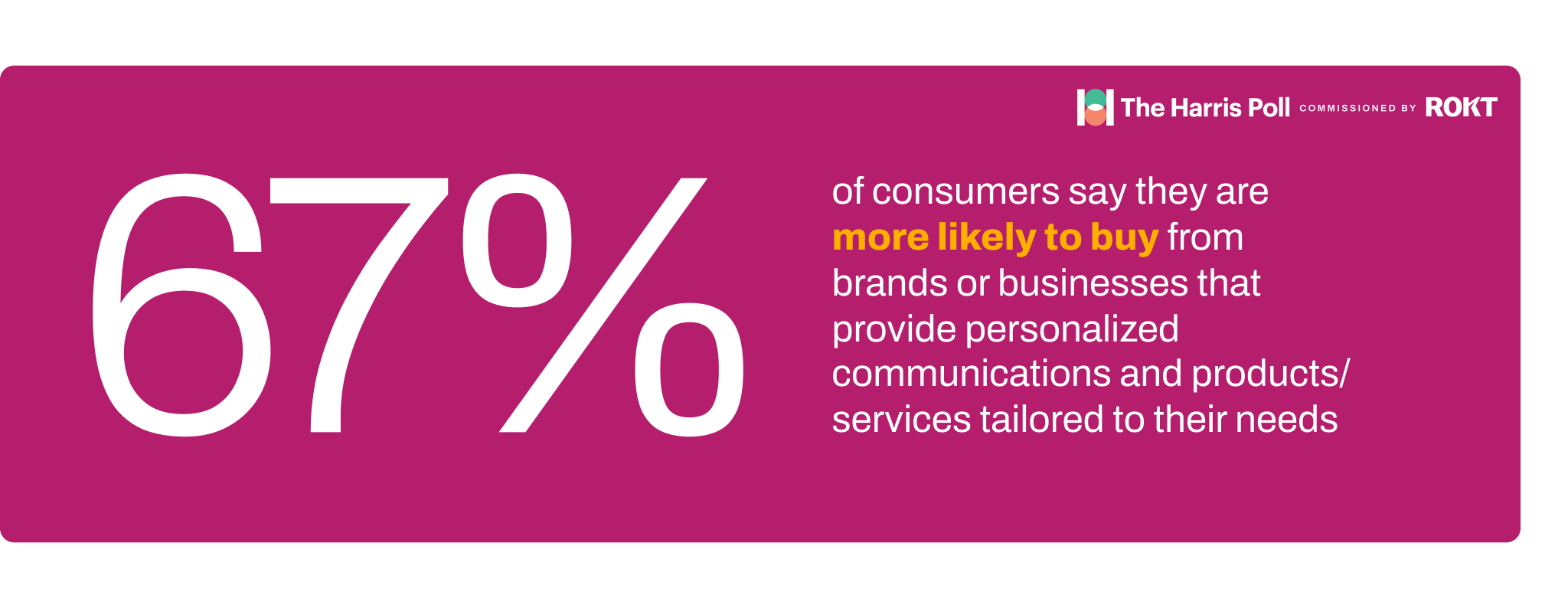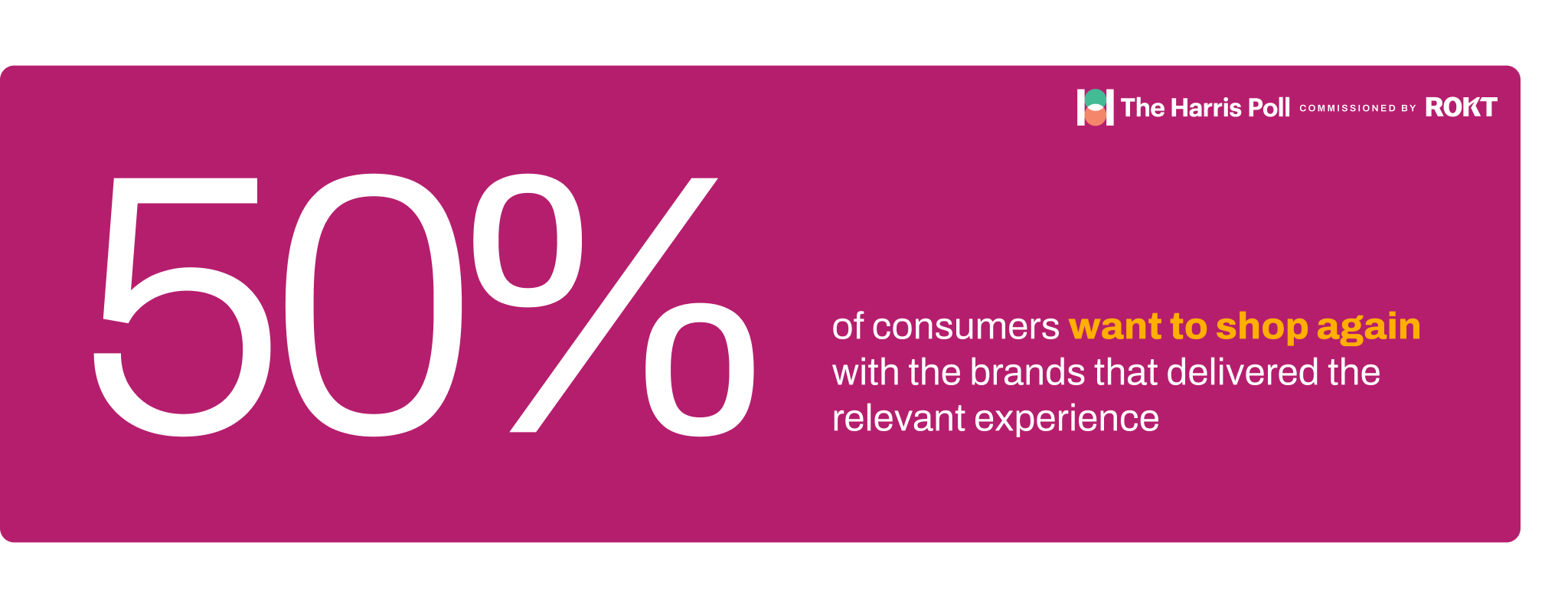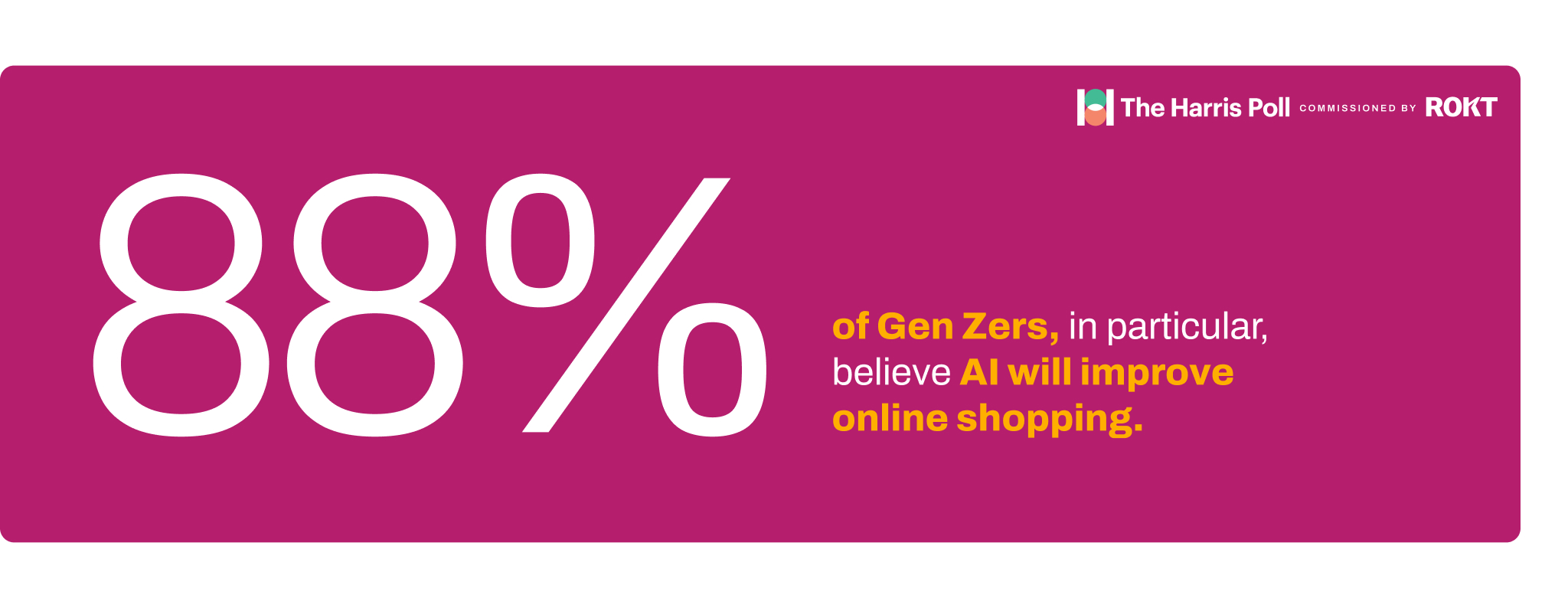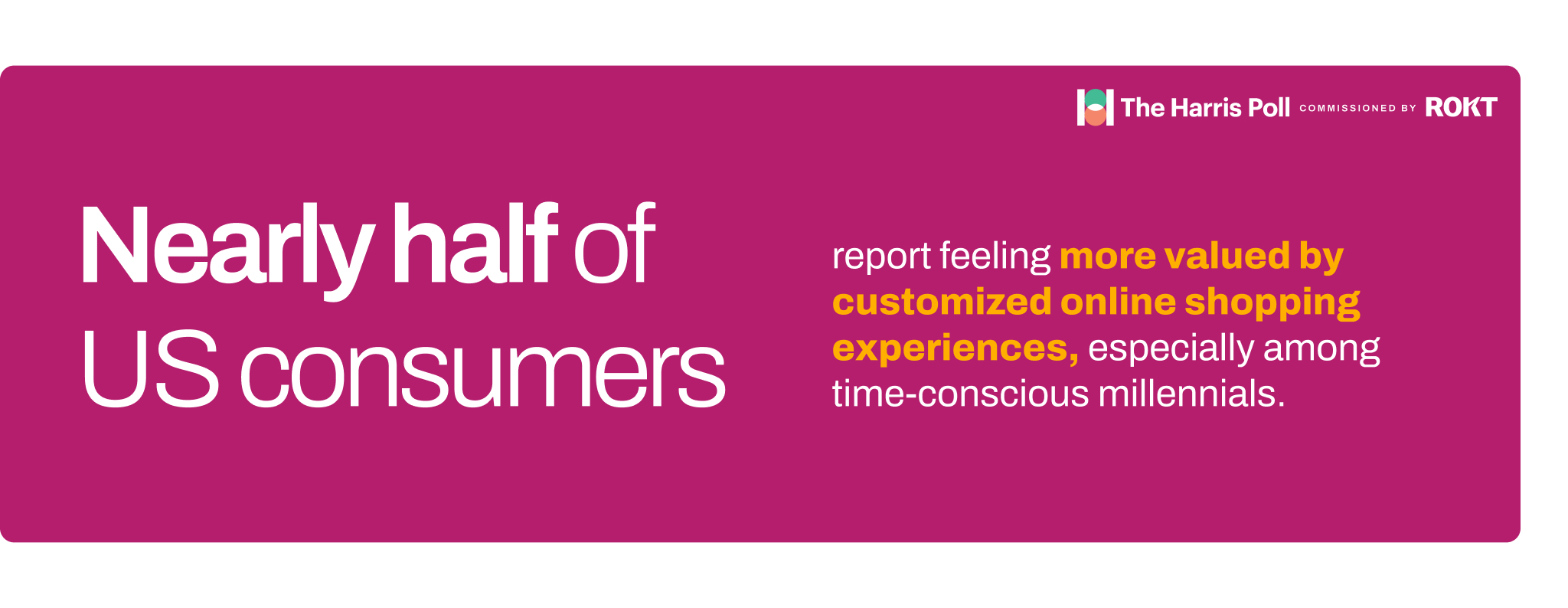4 key takeaways: a look back at the “What matters most – Relevancy” panel from the 2023 Forbes CMO Summit
Whether you’re marketing to other businesses, or directly to consumers, brand relevance stands as a crucial pillar for creating meaningful connections with consumers. At the 2023 Forbes CMO Summit, the “What Matters Most – Relevancy” panel moderated by Maggie McGrath, Senior Editor at Forbes featuring industry experts; Craig Brommers, CMO of American Eagle Outfitters; Dara Treseder, CMO of Autodesk and Elizabeth Buchanan, CCO of Rokt, each expert shared ways brands can achieve relevance with their own audiences. Here are 4 key takeaways from the panel:
1. The power of data and real-time relevance
Customers are seeking meaningful interactions and relevant offers from the brands they interact with, and data is the driving force behind crafting experiences that customers crave. According to the Rokt commissioned report with the Harris Poll, 67% of consumers say they are more likely to buy from brands or businesses that provide personalized communications and products/services tailored to their needs. Brands that leverage their own first-party data and advanced-AI technology to enhance conversations with consumers and drive relevancy leave a lasting impression on their consumers.

2. Understanding the difference between personalization and relevance
Personalization often revolves around tailoring content to individuals. However, the key distinction between personalization and relevance is content that translates into meaningful actions and cultivates customer loyalty. Elizabeth Buchanan puts it best on the panel, saying, “What [consumers] really are looking for is not to be remembered by name or by what they purchased last time, but actually by things that really feel important and relevant to them.” 50% of consumers want to shop again with brands that deliver relevant experiences . It’s not just about suggesting products or addressing customers personally, it’s about delivering messages and offers that are most relevant to the customers.

3. Adapting for future consumers
Gen Z and, soon, Gen Alpha are quickly becoming target demographics for brands, which means they need to stay agile and adapt to the unique needs of these consumers. 88% of Gen Zers, in particular, believe AI will improve online shopping. Staying ahead of emerging trends is crucial; focus on staying current with “What’s new, what’s now, what’s next,” according to Craig Brommers. For Brommers, utilizing insights from their mainly Gen Z store associates has been a way of unleashing more creativity for the brand and unlocks valuable insights.

4. Embracing authenticity with consumers
Authenticity serves as the bridge between brand intentions and real-world actions. Especially in a world where consumers are digital natives and have higher expectations, it’s essential to have a brand identity that can deliver impactful experiences that resonate with their audiences. Nearly half of US consumers report feeling more valued by customized online shopping experiences, especially among time-conscious millennials. Dara Treseder emphasized this on the panel, saying, “In order to bridge the intent of how we want consumers to act and then the result of what actually happens, we need to deliver authenticity.” Authentic brands consistently deliver on their promises and foster trust by being genuine, and they are rewarded with customer loyalty.

As the marketing landscape evolves and new consumers emerge, it’s essential to build a brand that speaks to consumers in a relevant way that adds value to their online experiences.
Looking to add more relevancy into your marketing strategies? Talk to an expert about how Rokt can help. Get access to the full commissioned report with the Harris Poll here.

